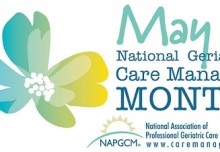 We all have seen the news stories in which older adults who are in a senior residential facility or dependent upon caregivers who come to their homes are intimidated by the people charged with their care. It can be physical abuse, emotional abuse, abuse by neglect or theft of the older residents’ valuables and money. But we do not often think of identity theft as an abuse targeting older adults. If you are a caregiver to an older loved one, you need to be a vigilant advocate and be prepared to report any suspicious behavior.
We all have seen the news stories in which older adults who are in a senior residential facility or dependent upon caregivers who come to their homes are intimidated by the people charged with their care. It can be physical abuse, emotional abuse, abuse by neglect or theft of the older residents’ valuables and money. But we do not often think of identity theft as an abuse targeting older adults. If you are a caregiver to an older loved one, you need to be a vigilant advocate and be prepared to report any suspicious behavior.
How can identity theft pose a threat to an older adult? Because someone has to look the part to get away with that, right? A growing number of cases nationwide suggest that older adults are perhaps even more likely as targets of identity theft than other younger people, and the reason very simply is that the person using a credit card in any number of transactions will rarely be asked for photo identification as they use the card. Even so, there are just too many “faceless transactions” for photo identification to pose any kind of barrier to abuse. Filling the tank at a service station or making a purchase on-line or purchasing by phone order are just a few examples.
But why target seniors? Well, that is where the money is. By the time one retires, the house typically is paid off and they have accumulated their nest egg for the “golden years.” And seniors are not likely to be making those big purchases for which a credit check is necessary, so they are not vigilantly tracking their credit scores nor is a lender. They may also not be using their credit card daily, so if it goes misses from a purse or wallet, it may be days before the loss is discovered.
There also are more interactive scams that can defraud seniors. There are fake phone solicitations by what seem to be worthy charities or the call from someone posing as a grandchild or other family member with an urgent need while in another town. There are investments for which they may be “prequalified” with rates that will always be above what the older investor is earning from bonds or other safer investments. And who has not had an opportunity to help retrieve prize or inheritance money from someone in western Africa?
As a caregiver, how can you help protect your older loved one?
- Warn your loved one to the possibility of this kind of abuse.
- Be alert to caregivers in your loved one’s home and limit their access.
- Suggest a credit card statement audit by a money manager who can spot fraud.
- If your loved one is already having difficulty keeping up with bills, step in to help organize their finances and give everything due scrutiny.
- If not you, personally, there are daily money managers who can fill this role (check the top listing on our resource page).
Charlotte Bishop is a Geriatric Care Manager and founder of Creative Care Management, certified professionals who are geriatric advocates, resources, counselors and friends to older adults and their families in metropolitan Chicago. Please email your questions to info@creativecaremanagement.com.






